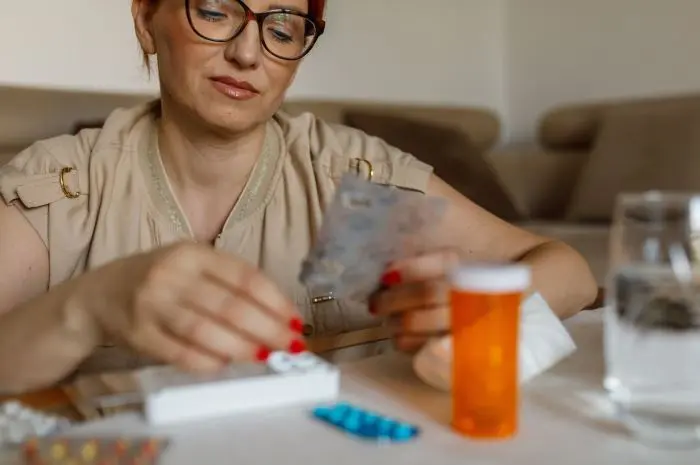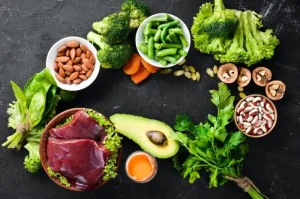We all know that drugs should be taken strictly as prescribed, both in terms of dose and timing, as well as nutrition during treatment. These are some combinations of foods and medicines that should not be taken together.
Bronchial spasmolytics (for asthma, bronchitis and other lung diseases)
Drugs: theophylline, albuterol.
Forbidden: food and drinks that contain caffeine.
Both drugs stimulate the nervous system, so avoid caffeine because anxiety and excess nervousness. Be especially careful with theophylline, caffeine increases because of its toxic properties. Reduce fatty foods because it increases the bioavailability of theophylline, causing an overdose.
Hot Topics: The Best Things to Do in Bandung that You Will Never Forget
Drugs that reduce the level of “bad” cholesterol
Drugs: atorvastatin, fluvastatin, lovastatin, simvastatin, rosuvastatin, pravastatin.
Forbidden: Grapefruit.
Grapefruit causes sudden increase in absorption of the drug that increases the risk of overdose and side effects. Therefore, a single pill with grapefruit is equal to 20 pills with water. The same applies to other sour fruits like lime or Seville orange.
Antihypertensive drugs (for heart problems and kidney)
Drugs: captopril, enalapril, ramipril,
Forbidden: foods rich in potassium.
Drugs in this group increase levels of potassium in the blood, which can lead to arrhythmia and dyspnea. You should therefore avoid bananas, potatoes, soybeans and spinach in the period of treatment.
Antiarrhythmic drugs (Heart)
Drugs: Digoxin.
Forbidden: licorice.
Licorice contains acid having the liquorice may cause disorder of the heart rate or even a heart attack. This substance is present in sweets, cakes and beer. Dietary fiber (bran, for example) reduce the effectiveness of the drug, so take it 2 hours before or after meals. Herbs like senna or St. John’s Wort also reduces the efficiency of digoxin.
Drugs to thin the blood and clots
Medications: Warfarin.
Forbidden: food for thinning the blood and food full of vitamin K.
While taking these drugs, you should reduce your intake of cranberry, garlic, ginger and some spices (pepper, cinnamon and turmeric). These foods cause the blood to be thinner and in combination with warfarin can lead to bleeding. Vitamin K, on the other hand, reduces the efficacy of the drug. This vitamin is found in spinach, beets, cabbage, broccoli and the like.
Thyroid gland
Drugs: levothyroxine.
Forbidden: soy, chestnut, fibers.
People taking levothyroxine (and drugs like euthyrox, bagothyroxs and L-thyroxine) should avoid soy and food from this plant because it blocks the drug’s efficacy. Chestnuts and high-fiber foods also have similar effects.
Antibiotics (for the bacterial infection)
Drugs: tetracycline, ciprofloxacin, penicillin.
It is forbidden: Milk products.
These antibacterials forme calcium compounds which are difficult to secrete and are found abundantly in milk products such as milk. This leads to a sharp decrease in efficacy.
Painkillers (prescribed for inflammation, muscle pain and headache)
Drugs: ibuprofen.
Forbidden: soft drinks.
Ibuprofen (also known as the Advil, genpril, proprinal) is not in accordance with the non-alcoholic beverages. These drinks contain carbon dioxide and acid increasing the absorption of the drug and raises the concentration in the blood. As a result, the dosage cannot be controlled and the risk of increasing the level of toxins in the kidneys can be increased.
Related Topics: The Best Things to Do in Lembang that You Will Never Forget
Antidepressants (prescribed for prolonged depression)
Drugs: All monoamine oxidase inhibitors (tranylcypromine, phenelzine, nialamide).
Forbidden: foods rich in tyramine.
Antidepressants include monoamine oxidase inhibitors, which together with large amounts of tyramine, can cause a critical increase in blood pressure. Tyramine is an amino acid which is formed during the aging of foods rich in proteins. It can be found in the old cheese, meat or fish, dry sausages and canned meat.
Combining
Certain drugs lose or have stronger effect if are combined with certain ingredients. For these reasons it is important to consult with your doctor or pharmacist and read carefully the instructions to avoid any unwanted consequences.











